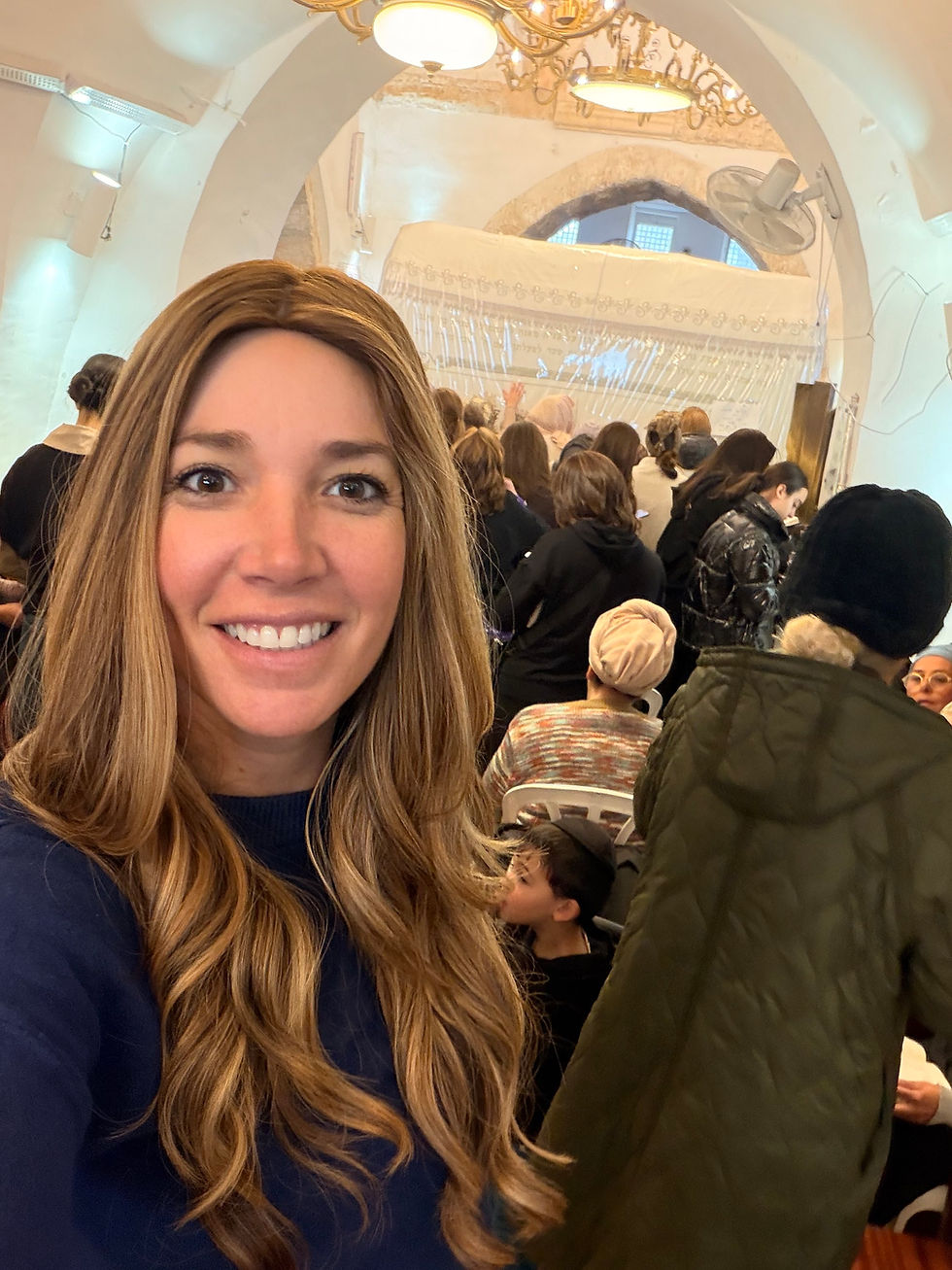Embracing the First Commandment: Finding Purpose in "I Am HaShem, Your God"
- Esther Nava

- Sep 17, 2024
- 4 min read
Chapter 37 of Tiferet Yisrael by the Maharal dives deep into the first of the Ten Commandments: "I am HaShem, your God, who brought you out of the land of Egypt." This simple declaration holds the foundation of our relationship with HaShem, offering profound insight into how we view our connection with the Divine and the freedom that comes from it. The Maharal's wisdom challenges us to look beyond the words and understand how this statement shapes our faith and our lives.

At first glance, many might wonder why "I am HaShem, your God" is considered a commandment at all. It’s not phrased as a direct instruction but as a statement. The Maharal helps us understand that this proclamation is more than a command; it is a reality check. HaShem is telling us, "I am here, I have always been here, and I will always be your God, whether you acknowledge it or not." This declaration is the bedrock of our spiritual existence and our relationship with the Creator.
It’s a statement of fact that HaShem is our God, not just because He created us, but because He actively intervened in our history by freeing us from Egypt. He is not a distant creator but a personal and ever-present force in our lives. Whether we choose to accept or deny His sovereignty, HaShem is still with us. Just as the people of Israel were freed from bondage in Egypt, we are invited to recognize that same freedom in our personal lives. The first commandment reminds us that the connection we are all searching for is already there—HaShem is with us, guiding us, even when we don’t realize it.
When HaShem chose to describe Himself as the God who brought us out of Egypt, He was making a personal connection with the people. He didn’t say, "I am the God who created heaven and earth," even though that is a truth. Instead, He reminded them of their collective experience of liberation. By doing this, HaShem is telling us that He is not just a distant, cosmic Creator, but the One who cares for us, who saves us from our personal and communal struggles. Egypt, in this context, is not only a physical place but also a symbol of limitations, of being trapped in fears, doubts, and the inability to grow. HaShem brought us out of Egypt, out of the mindset of being limited by our circumstances, to live freely under His guidance.
The Maharal further explains that the phrasing of "I am HaShem, your God" is intentional because it reflects the permanent and unbreakable bond between HaShem and the Jewish people. If the commandment had been phrased differently, like "I will be your God," it would imply that our relationship with HaShem is conditional or dependent on our actions. But the truth is, whether or not we recognize Him, HaShem is our God. This is a comforting and empowering thought because it means that no matter where we are on our spiritual journey, HaShem is always with us, supporting and guiding us.
Accepting HaShem as our God is not just about following commandments; it’s about acknowledging a fundamental reality. This acceptance isn’t a burden—it’s a gift that frees us from the anxiety of going through life alone. Knowing that HaShem is with us in every moment allows us to let go of the need to control everything and trust in the Divine plan. This is the essence of true freedom, the kind of freedom that HaShem offered when He took us out of Egypt, and the kind He offers us every day as we strive to grow spiritually and personally.
As we reflect on this first commandment, we realize it’s not just about the past, but also about our present and future. HaShem is reminding us that we don’t need to carry the burden of life’s challenges alone. He is our constant companion, the One who leads us out of our "Egypts"—our fears, doubts, and limitations—toward a life of purpose and spiritual freedom.
The beauty of the Maharal’s explanation is that it transforms the first commandment into a living truth. HaShem is not asking for permission to be our God; He is declaring that He already is. Our role is simply to accept and embrace that reality, to live each day with the knowledge that HaShem is guiding us, freeing us, and inviting us to connect with Him in every moment.
This blog is in the zechut of Eliana Yael Yocheved bat Sarah may HaShem help her attain all her hearts desires speedily, complete emuna, easy parnassa tova and success in all her endeavors!
In my book Pick Me Up HaShem, you’ll find many prayers that explore how HaShem is constantly drawing us closer to Him, inviting us into a deeper relationship through prayer and reflection. These prayers are designed to help you connect with the divine presence in a way that transcends mere requests and taps into the true purpose of prayer.
If you’re ready to dive deeper into these spiritual truths, consider studying Kabbalah, the mystical tradition that unlocks the profound secrets of our reality and draws us closer to HaShem’s divine wisdom. Delve into teachings that illuminate the “why” behind the Torah, connecting the layers of Creation in a synergized whole and offering a glimpse of HaShem in a way no other study can. From the timeless wisdom of Rabbi Chaim Vital and the Arizal to the unifying insights of Rabbi Sar-Shalom Sharabi (Rashash), Kabbalah not only transforms your spiritual understanding but also brings peace, protection, and redemption closer to our world. Sponsor my study in this sacred tradition and receive its blessings for sustenance, health, and family, ensuring that the powerful light of Kabbalah shines in your merit.


Comments